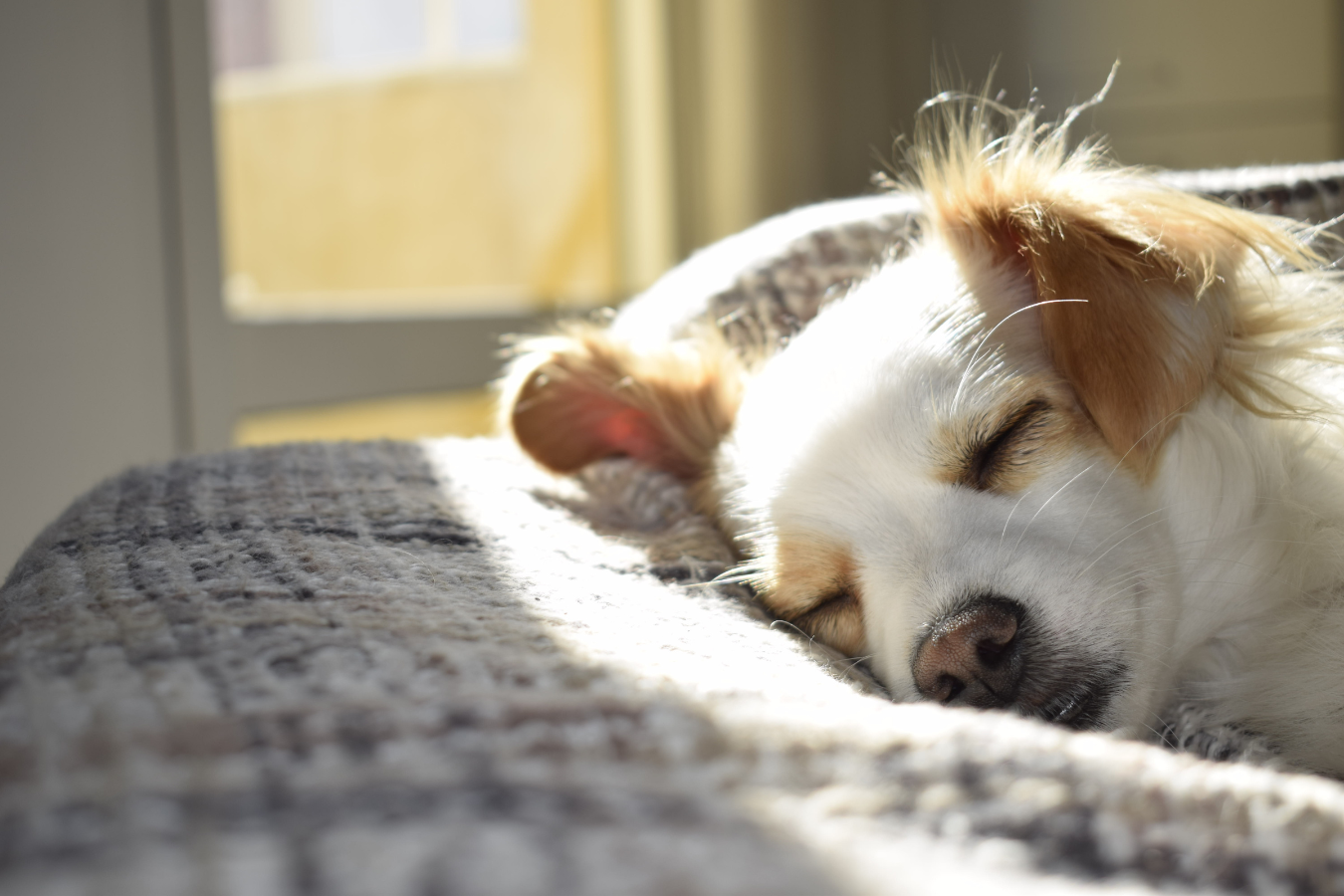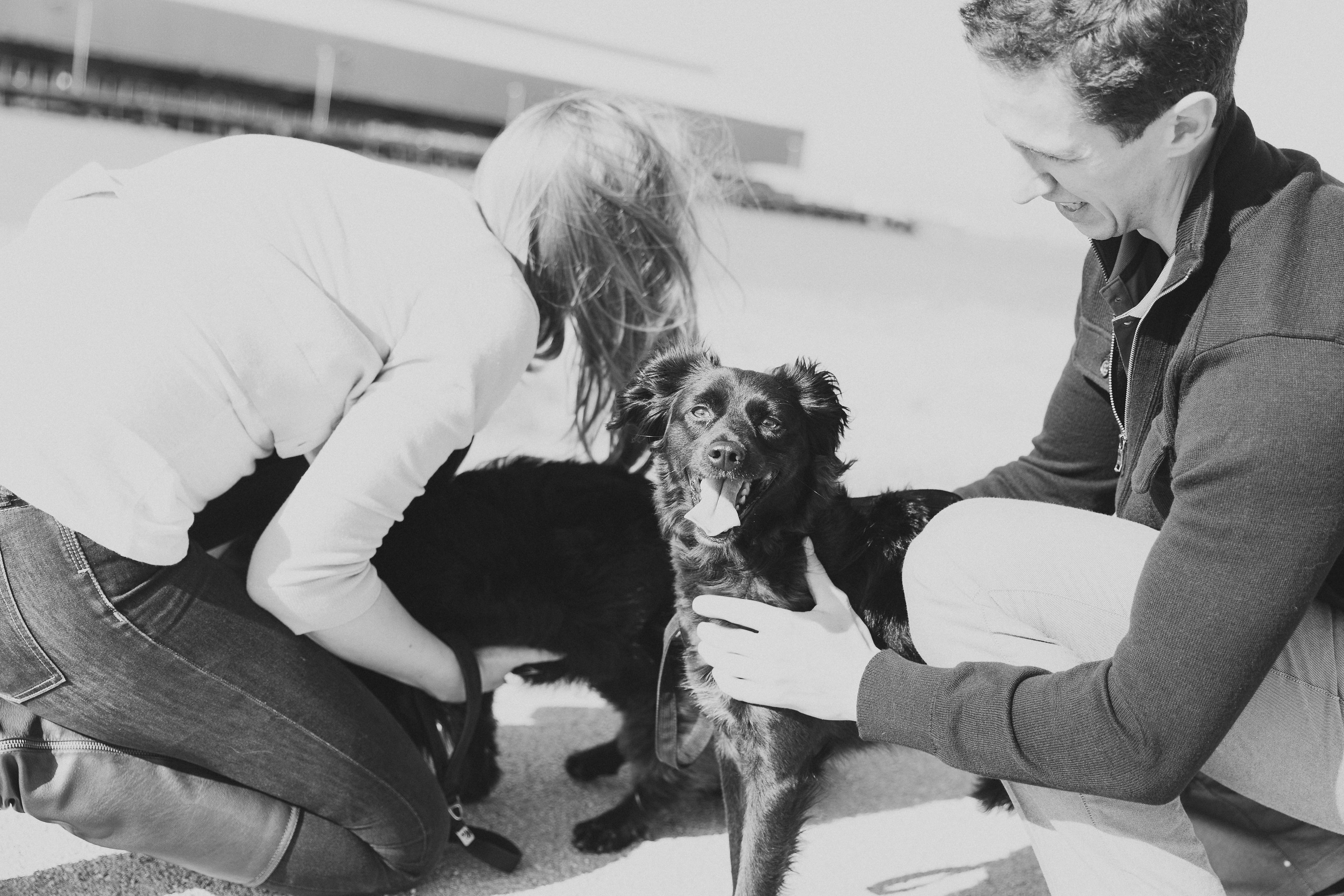When it comes to sleep, dogs seem to have it all figured out. It’s almost as if they follow a daily routine where napping is central.
While every dog is unique and may have specific sleep requirements and habits influenced by factors such as age, health, breed, and individual personality, some general trends remain to consider.
How Much Sleep is Enough?
Dogs love their sleep and need it to stay healthy and happy. On average, dogs need about 12 to 14 hours of sleep each day, although this can vary depending on breed, age, and individual preferences. Puppies and older dogs need even more sleep, while some working breeds need a little less.
Why Dogs Love to Snooze
Dogs need sleep for their physical and mental well-being. Just like us, dogs need sleep to recharge their energy levels! All the tail-wagging, playing, and exploring they do during the day can be tiring! Sleep helps them recover.
Puppies, in particular, spend a lot of their sleep time growing. This is when their bodies develop, and their muscles repair from all the running and jumping they do.
Dogs go through sleep cycles and use their sleep for mental processing. Dogs go through sleep cycles, and their brains are quite active during the REM (Rapid Eye Movement) phase. This is when they might be dreaming about chasing squirrels or playing fetch.
“Dogs need sleep for their physical and mental well-being.“
Falling Asleep Faster Than You Can Say “Fetch”
Dogs are champions when it comes to falling asleep. Unlike humans, who toss and turn, dogs often fall asleep in just a few minutes. It’s not uncommon to see your dog suddenly dozing off as soon as a play session winds down.
When Should You Worry About Your Dog’s Sleep?
It might raise a red flag if you notice your dog sleeping more than their usual amount. Even though they sleep a lot, excessive sleepiness in dogs can sometimes be a sign of underlying health issues. Here are a few things to keep in mind:
Age Matters: Puppies and senior dogs naturally sleep more, but if your middle-aged dog suddenly becomes lethargic and sleeps excessively, it’s time for a vet visit.
Sudden Changes: Call your vet if your dog’s sleep patterns change abruptly, along with other concerning symptoms like appetite loss or behavioral changes.
Lack of Energy: Dogs should be lively when they’re awake. It might be worth investigating if your pup seems sluggish and disinterested in their usual activities.
Barking in Their Sleep: While it’s normal for dogs to bark or twitch, if they’re having violent or aggressive dreams regularly, it might be a sign of anxiety or other issues.
In general, dogs and sleep are a match made in heaven. Dogs need rest for physical and mental health and to dream about chasing tennis balls and belly rubs! Let your sleeping dog lie – they are just recharging for tail-wagging adventures ahead!

Photo by Christian Domingues
If you enjoyed this post, you should read Back-to-School Bond Building with your Dog here.
How many hours a day does your dog sleep?
